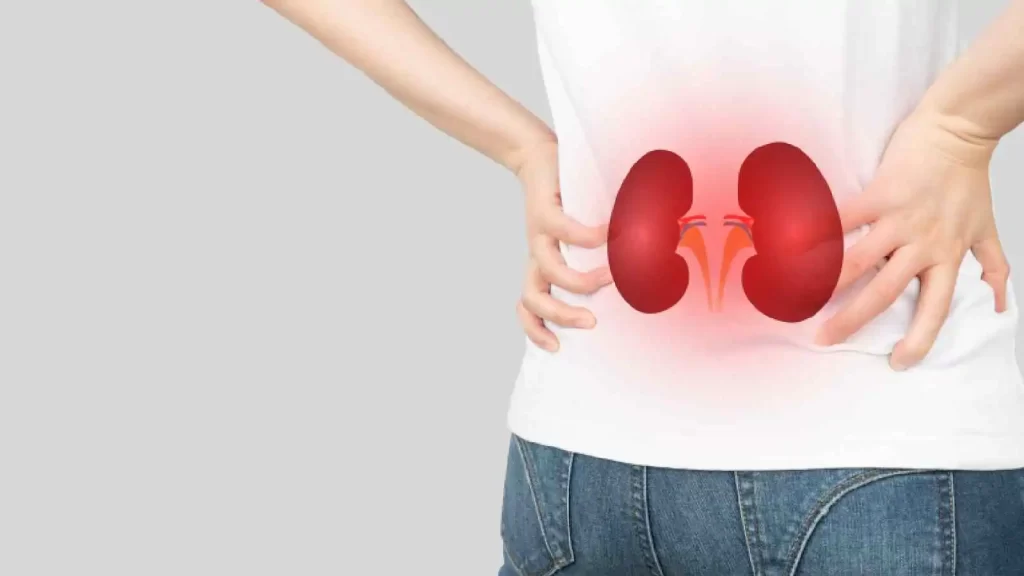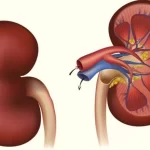Kidney stones are solid masses formed by deposits of minerals and salts inside the kidneys, especially in the ureters and urinary bladder. They hinder the outflow of toxins, which if not removed in time can lead to more serious complications. Small stones do not obstruct the urinary tract and are passed out of the body through urine. However, as the deposits grow and form large, hard stones, the patient experiences severe pain, bleeding, and frequent urge to urinate. Kidney stones can be classified into four types based on size and mineral deposits. The most common kidney stone is calcium oxalate, found in 80% of cases.
According to Ayurveda, kidney stones are caused by an imbalance in the three doshas and weakening of Agni (digestive fire) due to improper diet and lifestyle. Due to this damage, toxins are produced in the body, which result in kidney stones. Ayurvedic treatment of kidney stones includes herbal remedies, dietary changes, and lifestyle modifications. These treatments aim to balance the doshas and strengthen the agni, which helps dissolve the stones and prevent their recurrence.
What are some common symptoms of kidney stones?
Symptoms of kidney stones may vary depending on the size and location of the stone. Some common symptoms include:
- Severe pain under the ribs, in the arms, and back
- pain that spreads to the lower abdomen and waist
- pain that comes in waves and fluctuates in intensity
- pain or burning while urinating
- pink, red, or brown urine
- cloudy or foul-smelling urine
- Frequent need to urinate, urinating more often than usual, or urinating in small amounts
- nausea and vomiting
- Fever and chills due to infection
Can I treat kidney stones at home?
While smaller kidney stones may pass through urine without any medical intervention, larger stones may require medical treatment. However, some home remedies can help reduce the symptoms of kidney stones and prevent their recurrence. Here are some of them:
Stay hydrated: Drinking plenty of water helps flush out the toxins and minerals that cause kidney stones. Aim to drink at least 8-10 glasses of water daily.
Lemon juice: The citric acid present in lemon juice can help break down calcium-based kidney stone and prevent their formation. Mix 4 tablespoons of lemon juice in 2 liters of water and drink it throughout the day.
Apple cider vinegar: Apple cider vinegar contains acetic acid, which can help dissolve kidney stones. Mix 2 tablespoons of apple cider vinegar with 8 ounces of water and drink it twice a day.
Basil Juice: Basil juice is a natural diuretic that can help flush out kidney stone. Mix 1 teaspoon honey in 1 teaspoon basil juice and consume it daily for 6 months.
Rajma Broth: Rajma is rich in magnesium, which may help prevent kidney stone formation. Boil 1 cup kidney beans in 6 cups water for 3 hours. Filter the liquid and drink it throughout the day.
Please note that these treatments are not a substitute for medical treatment. If you experience severe pain, fever, or blood in the urine, seek medical help immediately.
What are some medical treatments for kidney stone?
Treatment of kidney stones varies depending on the size and type of stone as well as the severity of symptoms. Here are some common medical treatments for kidney stone:
Extracorporeal shock wave lithotripsy (ESWL): This procedure uses shock waves to break the stones into small pieces that can be passed out through urine.
Percutaneous nephrolithotomy (PCNL): This procedure involves making a small incision in the back and using a scope to remove the stones.
Ureteroscopy: In this procedure, a small scope is inserted through the urethra and bladder to remove stones.
Surgery: In rare cases, surgery may be required to remove the stones.
Please note that the treatment option depends on the size and location of the stone as well as the overall health and medical history of the patient. Your doctor will recommend the best course of action based on your individual needs.






